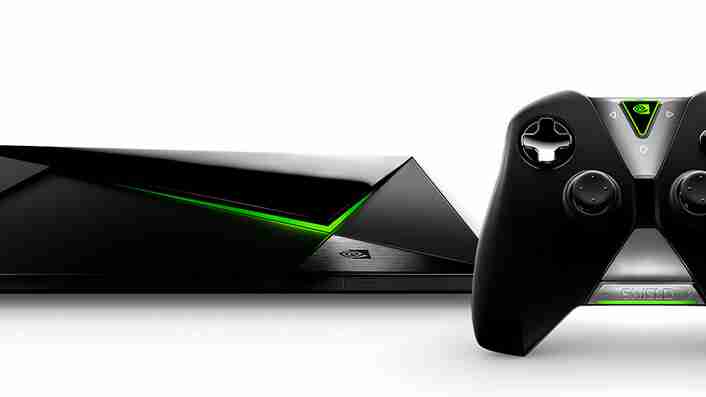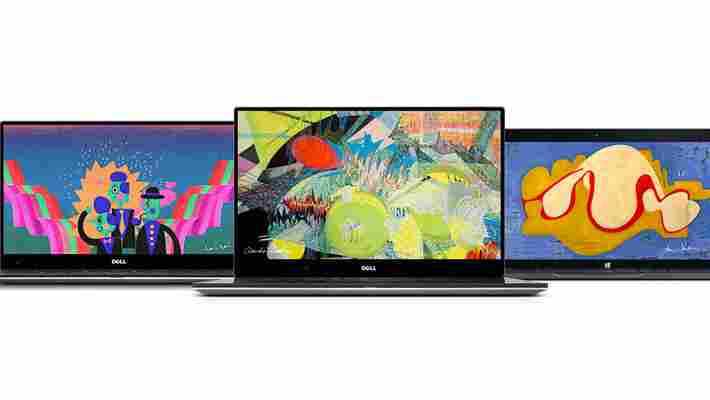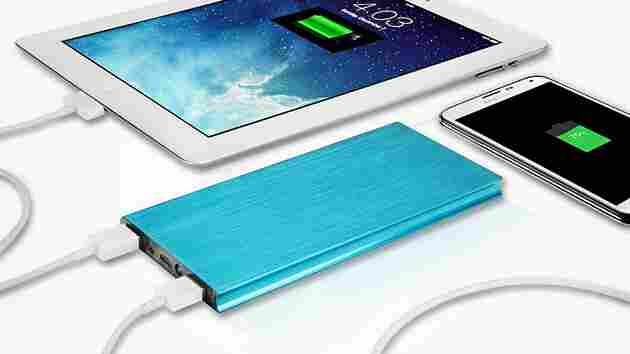Consumers in the US have been able to get their hands on NVIDIA’s Shield Android TV since May and from today, it’s on sale in the UK, France, Germany and Scandinavia as well.

The 16GB model will set you back £150 (€200), with the 50GB Shield Pro for £230 (€300).
NVIDIA claims that the Tegra X1 process inside the box delivers up to 25 times the performance level of other streaming devices. As well as the 16GB or 50GB of onboard storage, it also has a MicroSD slot and USB 3.0 port for additional power.
Running on Android, the NVIDIA Shield streams in 4K, works with Google’s voice commands and personalizes recommendations, as well as connecting to your PC or mobile device, with support for both iOS and Android connectivity using Google Cast. .
The set-top box comes with one controller and you can add a remote (£40/€50), stand (£20/€30) or gamepad (£50/€60) as well.
NVIDIA also launched its Netflix-for-games service, GeForce Now . Free for the first three months, it will cost you £7.49 (€9.99/$7.99) therafter for a monthly subscription.
Users can connect their Shield to GeForce Now and stream from a large library of PC games at up to 1080p and 60 FPS, and also purchase new games from the store.
So, if you’re looking for a new set-top box for streaming and you’re a gamer, the NVIDIA Shield is worth checking out.
➤ NVIDIA Shield [NVIDA]
Dell PCs have not 1, but 2 dangerous security flaws that could let hackers spy on you
Barely a day after Dell announced it was fixing a major security flaw on its recently shipped PCs , a second one has been discovered in the form of a self-signed root certificate.

Nearly identical to the previous issue, the DSDTestProvider certificate comes preinstalled along with its own private key on some Dell Inspiron and XPS models.
The DSDTestProvider certificate is installed through the Dell System Detect toll into the Trusted Root Certificate Store on newer systems. Since it includes its own private key, it can be used by attackers to generate false certificates for malicious websites and trick affected Dell systems into trusting their HTTPS connection.
This could be exploited by hackers to intercept users’ Web traffic to capture their credit card details and passwords or install malware on their computers.
In addition to being injected into users’ systems without their knowledge, a major problem with such manufacturer-installed certificates is that they might be tied to the computer’s BIOS and therefore pose a bit of a challenge to remove completely.
While Dell has acknowledged the existence of the eDellRoot certificate that was discovered earlier and issued a fix, it has yet to do so for the DSDTestProvider certificate. It’s unclear as to why the company didn’t release instructions and a software update to remove both potentially dangerous certificates the first chance it got.
Update: Dell has released a downloadable tool that removes both root certificates that you can grab here .
➤ A second dangerous Dell root certificate discovered [Computerworld]
72% off the Power Vault 18,000mAh portable battery pack
Charge up your mobile devices wherever you go with the Power Vault . Its powerful 18,000mAh battery can juice your phone and tablets multiple times on a single charge, and its sleek body takes up minimal space in your backpack, purse or pocket.

This essential battery pack is housed in a reinforced aluminum case so it’s lightweight, compact and durable. Plus, it can charge two devices at once, thanks to dual USB ports including a 2A high-output port for tablets.
If you’re on the road often, the Power Vault is a must-have accessory for your gadgets. Order now for just $29.99 — that’s 72 percent off — from TNW Deals with free shipping across the US, and never worry about running out of power on the move again. It’s also available with international shipping for $34.99.
➤ Get this deal
